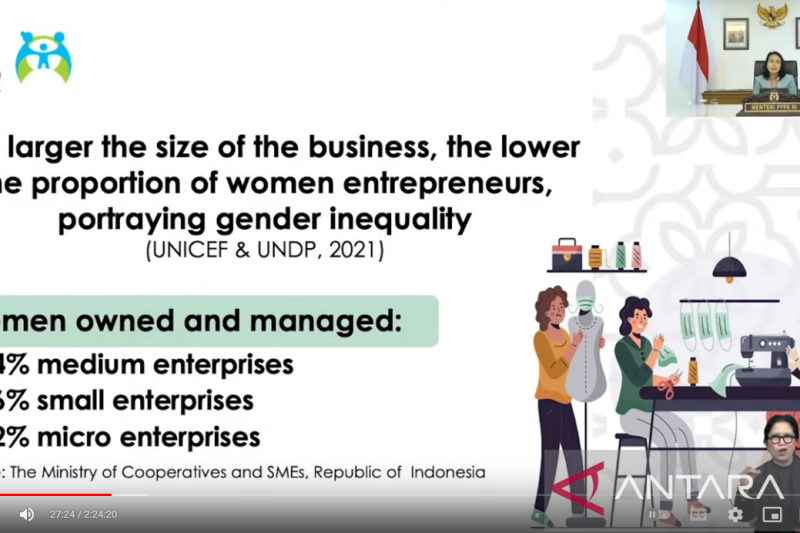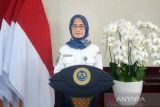
The presentation of Women's Empowerment and Child Protection Minister Bintang Puspayoga at an online event titled "G20 Empowering Women Entrepreneurs Through Inclusive Business" on Tuesday, March 22, 2022. ANTARA/ Anita Permata Dewi/ra
Economic empowerment is more than just earning a living, especially for womenFinancially independent women would be able to bring about an improvement in family welfare, according to Women's Empowerment and Child Protection Minister Bintang Puspayoga.
"Financially independent women will also improve family welfare," Puspayoga stated at an online event titled "G20 Empowering Women Entrepreneurs Through Inclusive Business," on Tuesday.
Moreover, the minister assessed that those women would be able to provide better access to nutrition and education for their children.
Puspayoga further noted that financially independent women could avoid domestic violence and prevent the practice of child exploitation and child marriage.
"It (financial independence among women) reduces the risk of child exploitation practices and child marriage problems that often arise due to poverty," she stressed.
Related news: Sexual Violence Crime Bill a form of Indonesia's commitment: DPR
To this end, Puspayoga explained that the Ministry of Women's Empowerment and Child Protection's first priority during the administration of President Jokowi during the 2020-2024 period is to empower women in gender-responsive businesses.
"The first priority is to increase women's empowerment in gender-responsive entrepreneurship," she affirmed.
The minister also emphasized that women's empowerment is more than just promoting women to have an income for sustenance but also ensuring that they are free from all forms of discrimination.
"Economic empowerment is more than just earning a living, especially for women," she stated.
Related news: Everyone must become women's empowerment agent: Minister Puspayoga
Moreover, Puspayoga pointed out that MSMEs owned and led by women are the worst affected by the COVID-19 pandemic that has hit the world for more than two years.
"MSMEs owned by women and those led by women are hit the hardest (by the pandemic)," she noted.
The minister stated that women were, in fact, one of the most important drivers for economic recovery and long-term economic stability.
According to the Ministry of Cooperatives and Small and Medium Enterprises (SMEs) data, from around 65 million micro, small, and medium enterprises (MSMEs) in Indonesia, around 52.9 percent of micro-enterprises, 50.6 percent of small enterprises, and 34 percent of medium enterprises are run by women.
Related news: Pandemic chance to women at center of economic activity: W20 delegate
Related news: Indonesian women playing leading role in SMEs: W20 chair


















